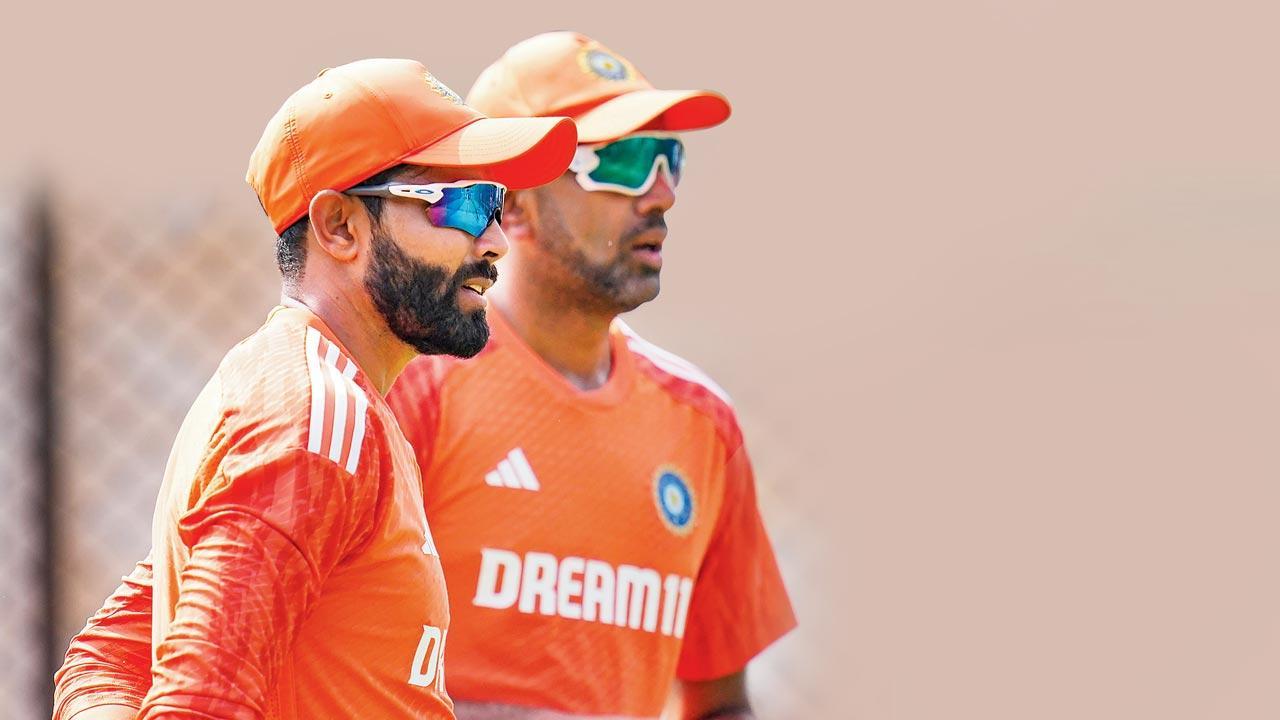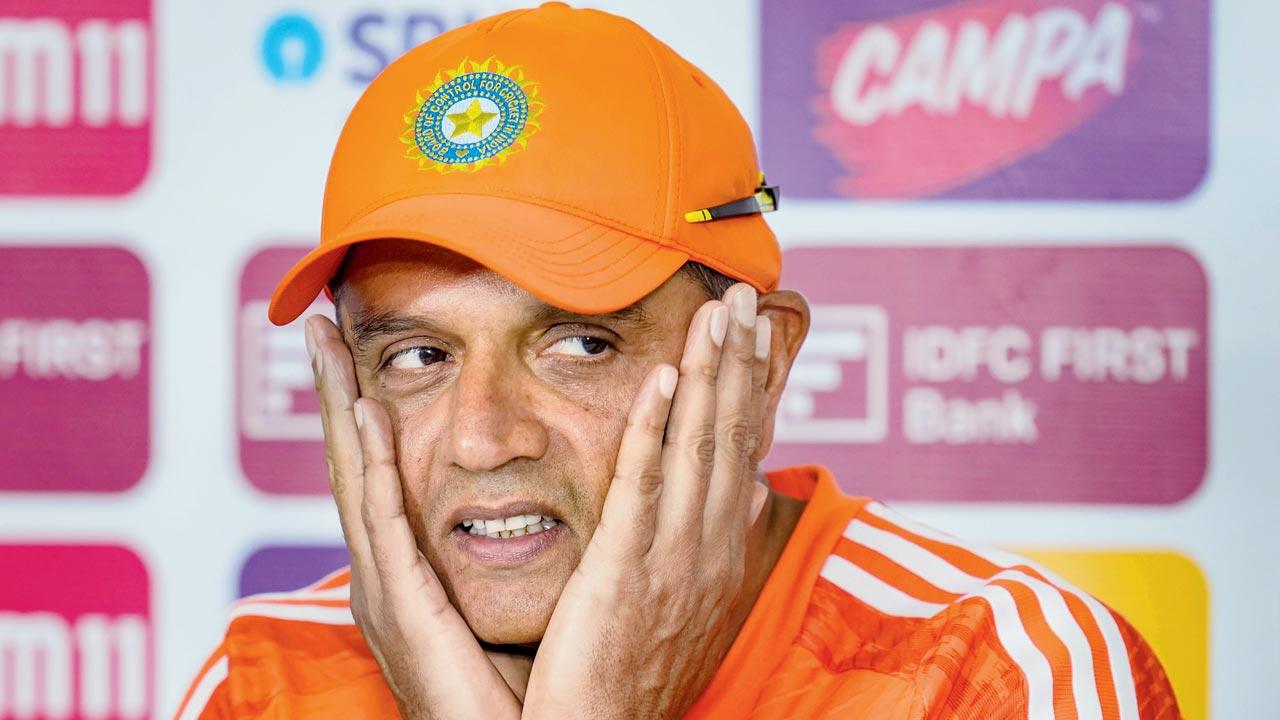India head coach Rahul Dravid says a five-match series is a great contest between two teams, giving everyone ample opportunity to perform as there is enough time to come back

India’s spin duo of Ravindra Jadeja and R Ashwin (right) during a practice session in Hyderabad yesterday. Pic/PTI
It’s been seven years since India last played a five-Test series at home. That was in 2016-17, coincidentally also against England, against whom Rohit Sharma’s men will square off in the first of five games from Thursday at the Rajiv Gandhi International Cricket Stadium here.
ADVERTISEMENT
A five-Test series can be a double-edged sword. It can help players rediscover form after an iffy start, but it can also ruthlessly expose technical limitations, as happened with Virat Kohli on the tour of England in 2014 when he only managed 134 runs from 10 innings. Five-Test series also place massive demands on physical and mental reserves in this day of so much white-ball cricket, something that Rahul Dravid alluded to when it was pointed out to him that this year alone, India will be involved in two such showdowns, including the one in the winter in Australia.
Player battles
“The positives of a five-Test series is that it’s a real contest between two teams and you really get to, in some ways, have those battles with players,” India’s head coach said on Tuesday afternoon.
 Rahul Dravid at a press conference
Rahul Dravid at a press conference
“You get a chance of coming back into form, you get a chance to test people’s weaknesses, they have an opportunity to respond to what you throw at them. Sometimes, in a couple of Test matches, three Test matches, it can happen pretty quickly. If you’ve got some technical deficiencies, or you’re struggling for form, sometimes it’s hard to come back. This gives you a really good opportunity to come back into it and to be able to not worry so much about the first couple of Tests, if you fail in the early part of a Test series. But, it’s like a little bit of a marathon where you’ve got to be able to stay competitive and pace yourself right through the series. It’s a really true test of the strengths of the two teams and, and the success of the two teams.”
Also Read: 'Rohit Sharma walks the talk as a leader': Zaheer Khan
Difficult to schedule
Having dwelt on the positives, the former captain sounded a note of caution in these days of non-stop cricket, emphasising that more five-Test series will mean players will need to be a little more choosy about where their priorities lie. “The downside, I think, is from a scheduling perspective; it’s tough for teams like us, and even England, for that matter,” Dravid pointed out.
“You play a lot of cricket, different formats of the game. For teams like us to keep playing five-Test match series means you’ve got to keep people on the park and you have got to manage out the other formats of the game as well. So, going forward, if there are more five-match series, then that’s going to become a big factor—how do you manage the schedules of our more busy players and whether then they’ll have to choose a specific time as to which form of cricket that they’re playing in.”
2016-17
The last time India played a five-Test series at home, coincidentally also against England
 Subscribe today by clicking the link and stay updated with the latest news!" Click here!
Subscribe today by clicking the link and stay updated with the latest news!" Click here!







